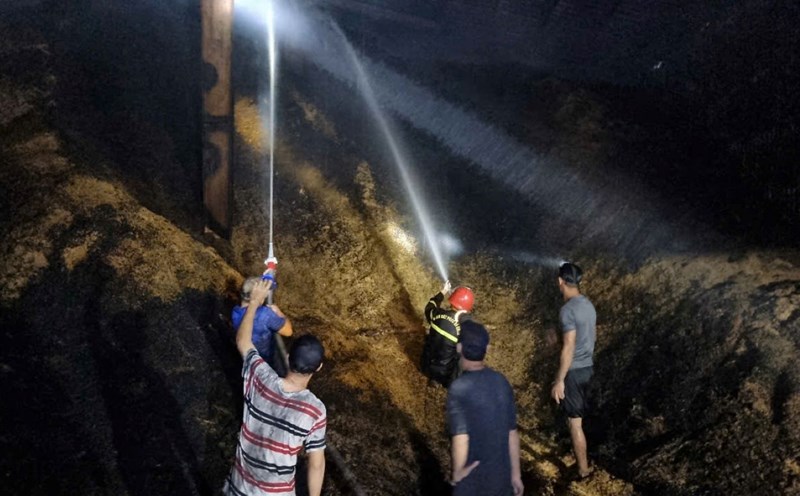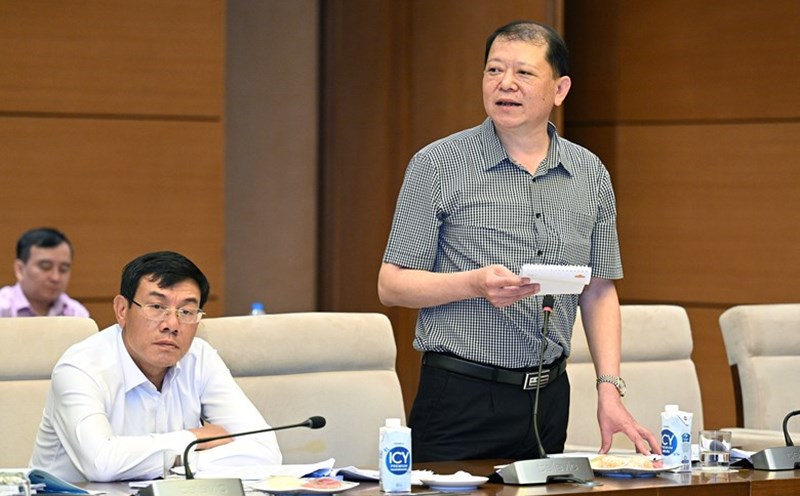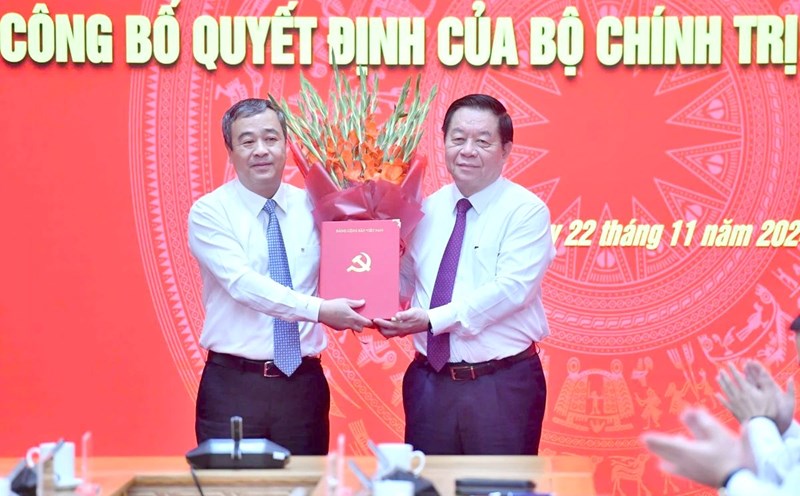Pangasius industry faces many difficulties
In 2024, the pangasius industry will face many difficulties such as high input material prices; political conflicts causing increased logistics costs; and the lack of autonomy in supplying food products from pangasius in neighboring countries causing consumer demand to stagnate in many importing countries.
Besides, the low purchase price of raw pangasius has affected production efficiency at hatchery and commercial farming facilities, especially small-scale facilities.
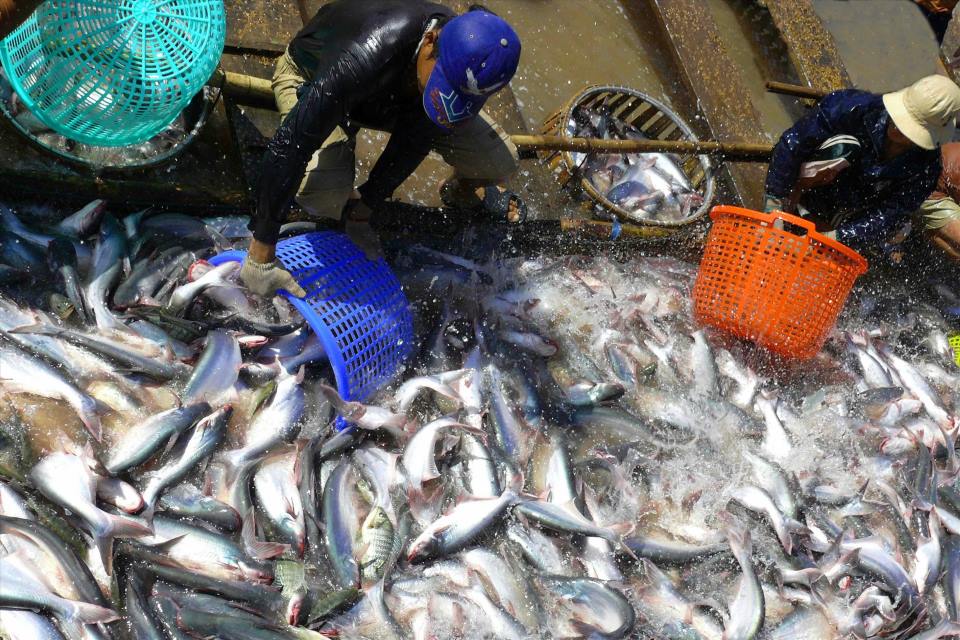
However, with the continuous efforts of businesses, support from relevant management agencies and associations, the Vietnamese pangasius industry has achieved remarkable results in both quality and value. Pangasius output in 2024 is estimated at 1.67 million tons, equal to 99% compared to the same period in 2023 (according to local reports. As of October 15, 2024, pangasius export turnover reached 1.56 billion USD, up 8.9% over the same period in 2023.
However, growth is uneven due to fierce competition from other whitefish countries and product lines.
Export turnover increases, what is the solution for sustainable development?
According to the Vietnam Association of Seafood Exporters and Producers (VASEP), as of October 15, 2024, pangasius export turnover reached 1.56 billion USD, an increase of 8.9% over the same period in 2023.
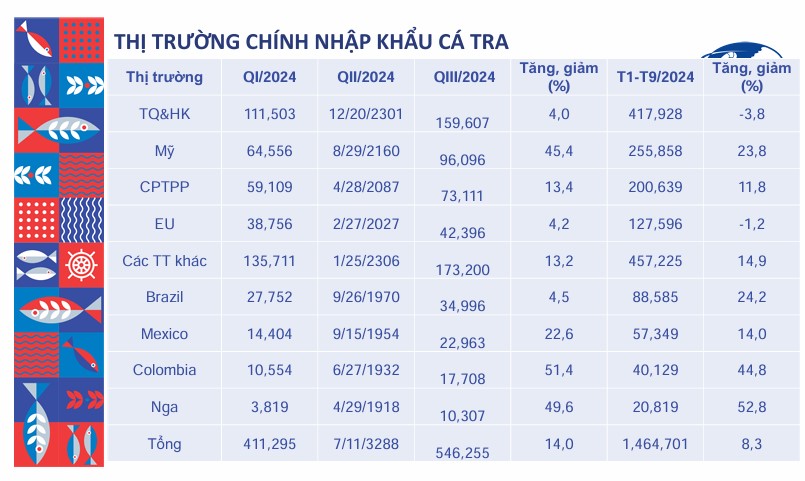
In the context of increasing consumption of seafood for food in the world, climate change may affect pangasius farming; many countries are expanding pangasius farming areas and processing similar seafood products... The Department of Fisheries said it has proposed many solutions to develop the pangasius industry.
"One of the key tasks and solutions in the coming time is to continue the selection programs and improve the quality of pangasius breeds. Pay attention to research and gradually replace fishmeal and fish oil in feed production with many types of alternative feed ingredients of plant origin, insects, microalgae, microbial protein, seaweed...
At the same time, building a brand for Vietnamese pangasius products through technological innovation, strict quality control from farming to processing and achieving certifications related to food safety, greenhouse gases, and environmental safety, helping to ensure consistent product quality and increase the value of the pangasius industry," said a representative of the Department of Fisheries.
At the same time, the Department of Fisheries requested the People's Committees of provinces and centrally-run cities to continue to properly manage farming conditions and food safety conditions for commercial pangasius farming facilities, and prevent people from arbitrarily purchasing drugs and chemicals of unknown origin online, or medicines for treating diseases for humans, livestock, and poultry for use in aquaculture.
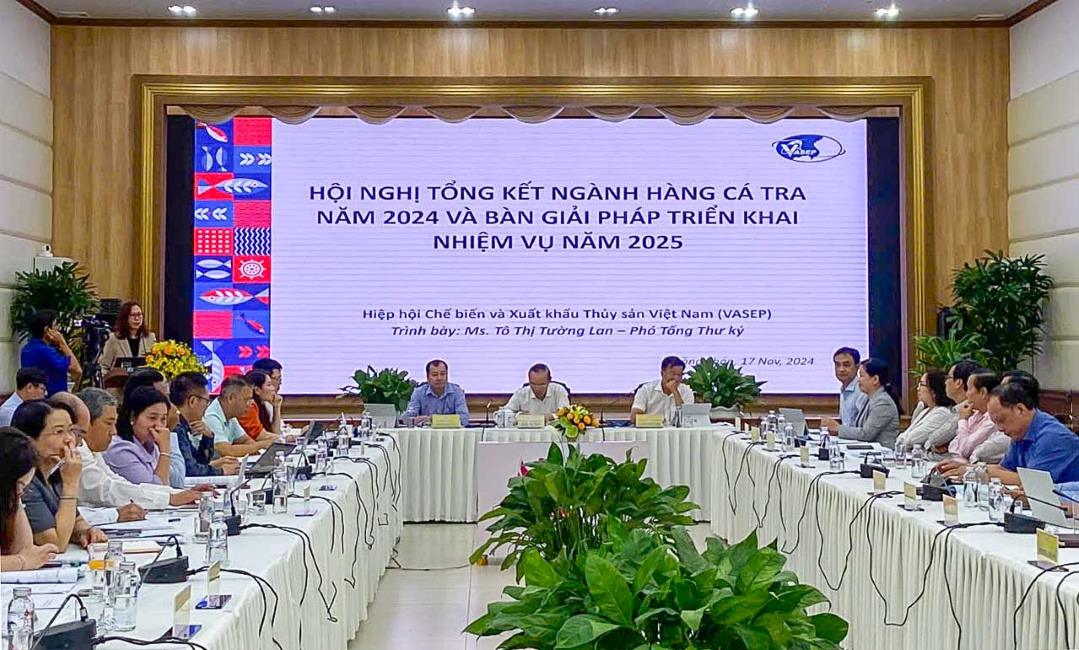
Meanwhile, the Vietnam Pangasius Association recommends strengthening the effectiveness and efficiency of state management to protect product quality and the reputation of the Vietnamese pangasius industry, controlling and directing specialized agencies, inspecting the quality of any enterprises that do not comply, and handling them.
At the same time, strengthen product quality, reduce loss rate, apply technical advances to help fish grow quickly, reduce diseases, low feed coefficient to reduce production costs...
"It is especially necessary to have a policy to stabilize feed prices because if feed prices continue to increase, farmers will not make a profit or will suffer losses, which will cause some farmers to temporarily stop production. The Association recommends that the Ministry of Agriculture and Rural Development give opinions to the Ministry of Finance to reduce import tax on raw materials for animal feed production from the current 2% to 0%, and reduce import tax on raw materials for aquatic medicine" - a representative of the Vietnam Pangasius Association shared.



